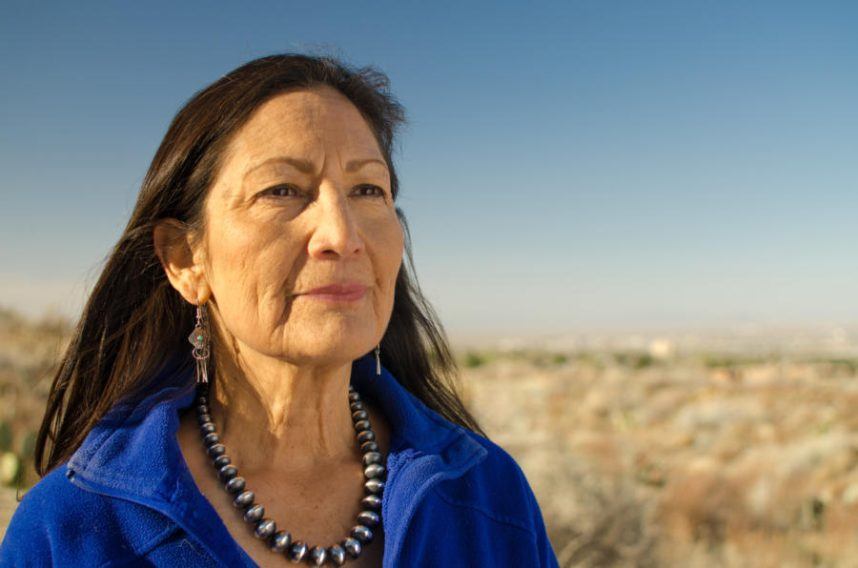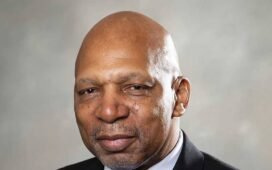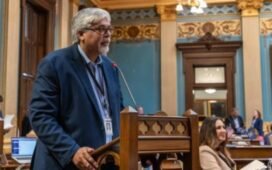Posted on: November 22, 2024, 11:34h.
Last updated on: November 22, 2024, 11:34h.
The Coquille Tribe’s dreams of building a casino in the city of Medford, Ore. have moved one significant step closer after the federal Bureau of Indian Affairs (BIA) issued a final environmental impact statement (FEIS) Friday in support of the plan.

The move has sparked concerns among those opposed to the casino – and there are many — that the outgoing Biden administration will push it through during the lame duck session.
The land-in-trust application for the casino was nixed by the BIA under Trump in 2020. But that decision was reversed by the Biden administration a year later because it had been issued before the environmental review process was completed.
The BIA’s next step is to launch a 30-day public comment period. After that, the agency will produce a final record of decision (ROD) on whether to place the land in trust for the Coquille. Typically, the ROD affirms the EIS, although not always.
‘Reservation Shopping’
The Coquille Tribe owns the Mill Casino on its reservation in Coos Bay but has harbored plans for a modest gaming venue in Medford on the site of a former bowling alley since 2011. The tribe first applied to the BIA in 2013.
Opponents have accused the tribe of “reservation shopping” and claim the approval of urban, off-reservation tribal gaming is against the intention of the federal Indian Gaming Regulatory Act IGRA, which codified tribal gaming rights.
The plan is opposed by numerous tribes in Oregon and California, US Congresspeople from both those states, and Oregon’s Democratic Gov. Tina Kotek.
In March of this year, the Karuk, Cow Creek, Elk Valley, and Tolowa Dee-ni’ tribes—all based in Oregon and Northern California — wrote to Department of the Interior (DOI) Secretary Deb Haaland voice their resistance to the plan.
The Coquille Tribe claims ancestral ties to the area, despite Medford being 168 miles and a three-hour drive away from its base in Coos Bay. However, opposing tribes argue the claim is false and based on “bad data.”
“The Coquille Tribe has no historical presence in the watershed of the Rogue River and cannot document any village or sustained use of the region until the 1950s when a member of the tribe, later serving on the tribal council, became a college student in Ashland and subsequently settled in the area,” claims the “Keep Your Promise to the Tribes” campaign website.
‘Fundamental Misunderstanding’
But Coquille tribe chair Brenda Meade has said this is a fundamental misunderstanding of the nature of tribal reservations, adding that the term “reservation shopping” created a dangerous precedent for political attacks against other tribes seeking economic self-determination.
The tribe was recognized in 1989 by the Coquille Restoration Act, which did not restore a contiguous area of land to the Coquille. Instead, it identified a specific area where land could be taken into trust to become part of the reservation, Meade explained in a recent op-ed for Oregon Live.
This included Coos County, as well as Medford’s Jackson County, and others.
Congress studied where our people lived, traded and worked, both historically and during termination. It learned that its own policies had caused us to disperse across the landscape,” Meade said.
‘No Respect’
In a statement Friday, Cow Creek Umpqua Tribal Chair Carla Keene said her tribe’s opposition to the trust-land application has been repeatedly “deflected or ignored” by Interior Secretary Deb Haaland.
Haaland had not treated the Cow Creek and others “with respect as sovereign nations but as a nuisance,” she added.
Today, my heart feels what our ancestors felt years ago with the stealing of our lands,” Keene said in a statement to Casino.org. “We have continually reached out and tried to work with the government, and we’ve been a sister tribe to others, but the government continues to take from our tribe and give it away.”















